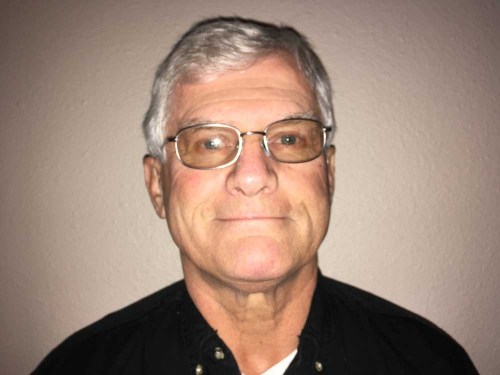Other views: Remembering the ‘chief’
Published 6:00 am Saturday, November 21, 2020

- Remillard
I first met Pendleton Fire Chief Richard “Dick” Hopper, who passed away on Sunday, Nov. 8, when I became a volunteer firefighter for the department on Feb. 5, 1981.
Chief Hopper met with the volunteers that evening to explain to us that yes, the volunteer firefighters were an integral part of PFD, and I remember being impressed with his knowledge of his chosen career. I learned new words that night, like “apparatus” (nearly any piece of fire equipment, but mostly referred to an engine or ladder truck), and could tell he was the one in charge.
Chief Hopper was only 35 years old when he was hired as fire chief on Feb. 1, 1980, which is a fairly young age to take on the task he was assigned. There had only been two fire chiefs in Pendleton before Chief Hopper since 1932 — William “Blacky” Batchelor and Virgil “Butch” Boyd.
After I was hired in 1985, I soon learned that Chief Hopper was more of an administrator than a firefighter. Of course, he knew how to manage a fire, but managing the department was his primary concern. His attempts at bringing the department into the “new world” were sometimes met with resistance from the troops, myself included. As my career advanced over the years, however, I could see where he had made sound decisions when it came to managing the department, personnel, budgets, LifeGuard (the first helicopter ambulance based out of a fire department in Oregon) and the career advancement opportunities available to all personnel.
Many of us took advantage of these opportunities and have advanced well during our careers.
For me, Chief Hopper was an inspiration. Without his “no excuses” attitude, his high expectations of all of us, or his “do you want this job or not” speech to me when I was struggling to find an emergency medical technician class (since the criteria for me being hired was that within a year of hire I had to pass the EMT 3 exam in order to keep my job), I would not have been able to say that I am a firefighter — something I am very proud of. Not to say I always agreed with him, which of course I didn’t. But I always knew what he expected and always tried to accomplish it, albeit sometimes after a butt chewing, which was something I experienced a time or two. But that’s another story.
If Chief Hopper had an issue with something that was performed incorrectly, to put it mildly, he would definitely get your attention. But he would never dwell on it. Once it was agreed you were in the wrong, he expected that issue to be corrected and wouldn’t bring it up again as long as it was handled. He could make me feel pretty bad about a decision I had made. However, he had a way of making me understand that “that’s not how that’s done, and it won’t be done that way again, will it?” No sir.
After I was promoted to assistant chief/fire marshal on April 1, 1998, I really felt under the gun. After a few nervous months for me, I could tell his trust in me was, again, an inspiration for me to do my best. I have always felt if Chief Hopper gave one of us a compliment, it was well earned. He didn’t give them out for just doing the job.
As time rolled on, I came to realize his lack of current training on fire tactics and strategy could have put firefighters in a somewhat dangerous situation. I reluctantly pointed this out to him. He took it well, but I could tell he felt somewhat embarrassed. He rarely had shown up to a simple house fire or other minor alarm, as he expected his officers to perform the task without his intervention.
I could go on for some time, speaking of how Chief Hopper felt about the fire service and what it meant to serve the residents of Pendleton. His civic pride showed very little to the public, but I saw things he would do, as a loyal city employee, that the public could never see. One thing that sticks in my mind is when he bought a new pickup about the same time I did. He bought his in Pendleton, while I shopped around the Northwest for the best deal. When we spoke about our buying pickups, he told me he felt it was only right to buy in Pendleton, since that is where he lived, worked and enjoyed the company of others.
He didn’t want anything to do with wildland firefighting, because in his words, “Pendleton is paying my wages, that’s where I need to be.” Unlike in the last 20 years or so, where many chiefs, assistant chiefs, captains, lieutenants and firefighters spend much of the wildland fire season away from the communities that hired them.
I was saddened to hear of Chief Hopper’s passing from his wife, Shirley. To me, he was the person who made my career what it was. If not for his trust, guidance, expectations and, yes, sometimes outdated mode of doing things, I don’t know that I would have stayed in the fire service. I’m sure glad I did. Rest in peace, sir; to me, you’ll always be the chief.
Do you have a point you’d like to make or an issue you feel strongly about? Submit a letter to the editor or a guest column.






